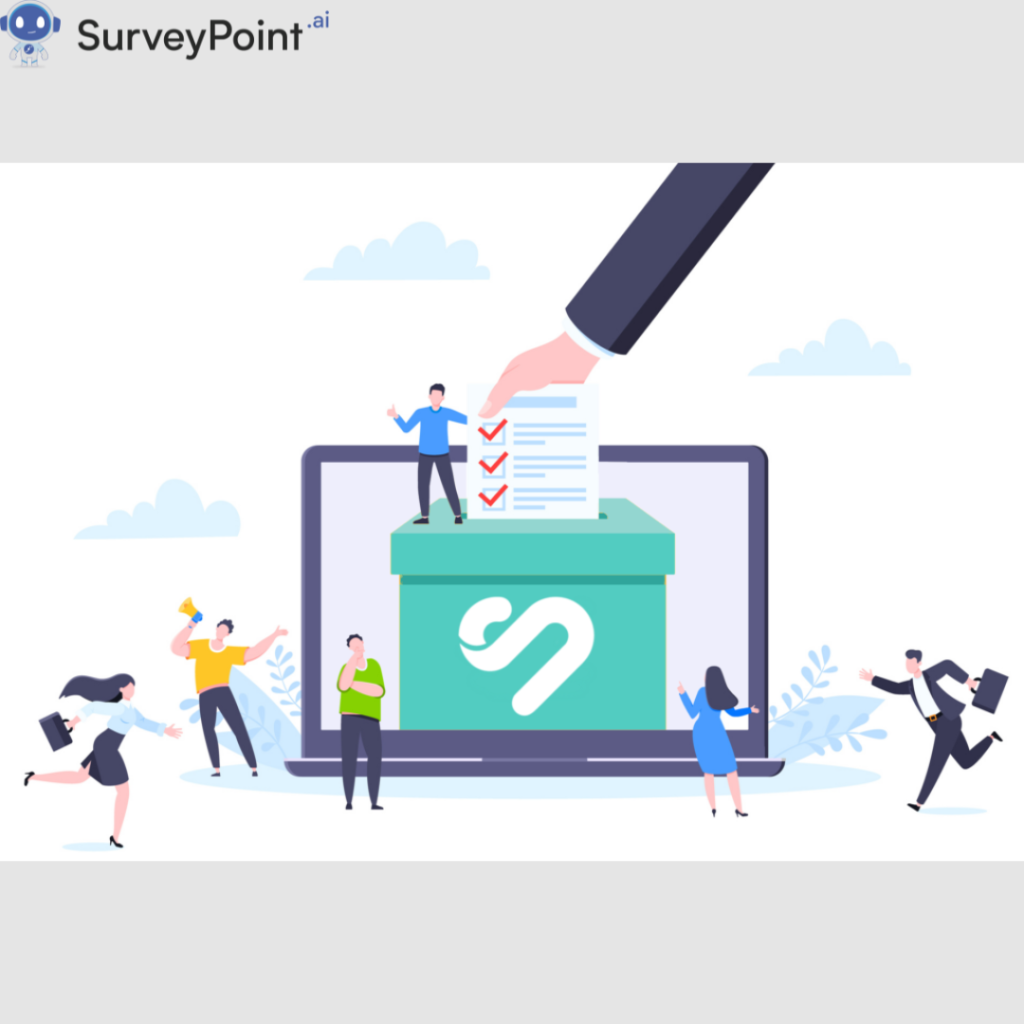
In the world of customer experience management (CXM), employee engagement, and market research, Qualtrics has established itself as one of the most dominant players. As an enterprise-level platform for gathering customer feedback, analyzing data, and improving business operations, Qualtrics offers a wide range of features that help companies collect, manage, and act on feedback from customers, employees, and market segments.
However, Qualtrics is not the only platform in the market offering such services. Numerous competitors also provide excellent survey, research, and experience management tools, catering to businesses of all sizes and industries. These competitors vary in terms of features, pricing, user experience, and flexibility. Understanding the landscape of Qualtrics competitors is important for businesses looking to select the best tool to meet their needs.
This blog post will explore a variety of Qualtrics competitors, comparing their features, pricing, strengths, and weaknesses. We’ll dive into both direct competitors—those that operate in the same customer experience and survey space—and alternatives that offer specialized functionalities for specific needs.
The Landscape of Qualtrics and Its Competitors
Before we dive into the specifics of each competitor, it’s important to understand the landscape in which Qualtrics operates. The platform excels at providing:
- Survey Creation and Distribution: Customizable surveys that can be distributed through email, web links, social media, etc.
- Advanced Analytics: Powerful tools for analyzing survey results, including cross-tabulation, trend analysis, and sentiment analysis.
- Customer and Employee Experience Management: Tools for gathering feedback from customers and employees to improve business processes and engagement.
- Automated Reporting: Real-time reports and dashboards to track results and make data-driven decisions.
- Integration Capabilities: Integrations with CRMs, email marketing platforms, and other tools to provide a seamless experience.
Now that we’ve outlined the scope of Qualtrics, let’s explore some of the leading competitors in the survey and experience management space.
1. SurveyMonkey
Overview:
SurveyMonkey, one of the most popular online survey tools, is a direct competitor to Qualtrics in the survey creation and analysis space. It is used by businesses, academic researchers, and government agencies alike to gather data, create questionnaires, and analyze responses.
Features:
- Ease of Use: SurveyMonkey is known for its simple and intuitive interface, making it easy to create surveys without needing a deep knowledge of survey design.
- Customizable Templates: The platform offers a wide variety of customizable survey templates for different industries, including customer satisfaction, market research, and employee feedback.
- Advanced Analytics: SurveyMonkey includes robust analytics tools, such as sentiment analysis, data segmentation, and reporting dashboards.
- Integration: It integrates with a wide range of business tools, including Salesforce, Mailchimp, and Slack, making it a great option for businesses that require seamless integrations with their workflow tools.
Strengths:
- User-Friendly: Unlike Qualtrics, which may have a steeper learning curve, SurveyMonkey is easy to get started with, making it a popular choice for non-technical users.
- Affordable: SurveyMonkey offers a free tier with limited features, as well as reasonably priced premium plans, making it accessible for businesses with varying budgets.
- Wide Usage: SurveyMonkey has a large user base, and its recognition in the market helps businesses feel confident in adopting the platform.
Weaknesses:
- Limited Advanced Features: While SurveyMonkey excels in ease of use, it doesn’t match Qualtrics in terms of the depth of advanced features, particularly for enterprise-level businesses with complex needs.
- Limited Customer Experience Management: Unlike Qualtrics, SurveyMonkey is not as focused on customer experience management or employee engagement tools.
Conclusion:
SurveyMonkey is an excellent choice for small to medium-sized businesses that need an intuitive, affordable, and effective survey tool. However, larger enterprises with complex customer experience or market research needs may find Qualtrics’ more advanced features and enterprise-grade analytics more suitable.
2. Medallia
Overview:
Medallia is a customer experience management platform that competes with Qualtrics by helping organizations manage and act on customer feedback. Medallia focuses on providing real-time customer experience insights across various touchpoints.
Features:
- Omnichannel Feedback: Medallia excels at collecting feedback from various sources, including web surveys, email, mobile apps, social media, and even in-store interactions.
- AI and Machine Learning: Medallia uses AI-powered analytics to detect sentiment, trends, and potential issues in customer feedback in real-time.
- Actionable Insights: The platform offers real-time alerts and dashboards, ensuring that businesses can act on customer insights immediately to improve satisfaction.
- Employee Experience: Medallia also offers employee feedback tools, making it a strong contender for businesses that want to manage both customer and employee experience.
Strengths:
- Real-Time Insights: Medallia is highly focused on real-time data, allowing businesses to react quickly to customer feedback.
- Omnichannel Approach: The platform excels at collecting feedback across a wide range of channels, giving businesses a comprehensive view of the customer experience.
- AI Capabilities: Medallia’s use of AI and machine learning to interpret feedback sets it apart from many of its competitors.
Weaknesses:
- Complexity: Medallia’s platform can be complex and may require a longer onboarding process for users, especially those who are new to experience management tools.
- Cost: Medallia’s pricing can be on the higher end, particularly for smaller businesses or startups.
Conclusion:
Medallia is a top-tier solution for large organizations that need a comprehensive platform for managing customer and employee experience across multiple touchpoints. While it offers more advanced features than SurveyMonkey, it can be overwhelming for smaller businesses or those with simpler needs.
3. Typeform
Overview:
Typeform is a versatile online survey tool that stands out for its beautiful and interactive survey design. It is known for its user-friendly interface and visually appealing surveys, making it a great tool for organizations that want to create engaging surveys with a focus on user experience.
Features:
- Interactive Survey Design: Typeform’s unique, conversational approach to survey design makes it stand out from other platforms. Surveys feel more like a conversation than a traditional form.
- Custom Branding: The platform allows users to fully customize the look and feel of their surveys, including adding logos, colors, and other brand elements.
- Wide Range of Question Types: Typeform offers a variety of question types, including multiple choice, open text, rating scales, and more.
- Integration: Typeform integrates with many other platforms, including Google Sheets, Slack, Zapier, and Salesforce.
Strengths:
- User Experience: Typeform is highly regarded for its user-friendly design and the engaging nature of its surveys. This makes it an excellent choice for businesses looking to boost response rates by creating visually appealing, interactive surveys.
- Flexibility: Typeform allows users to create customized surveys for different use cases, from market research to customer feedback.
Weaknesses:
- Limited Advanced Features: While Typeform excels in design and user experience, it doesn’t provide the advanced analytics or experience management features that Qualtrics or Medallia offer.
- Price: Typeform’s premium plans can be expensive compared to other survey tools, and its free plan is relatively limited.
Conclusion:
Typeform is an excellent choice for businesses that prioritize user experience and need visually engaging surveys, but it may not be the best fit for large enterprises or those requiring advanced analytics and integrations.
4. Alchemer (formerly SurveyGizmo)
Overview:
Alchemer is a robust survey tool and an alternative to Qualtrics, particularly for organizations looking for a customizable survey platform. It’s designed for businesses of all sizes, offering both simplicity and flexibility for creating surveys and managing feedback.
Features:
- Customizable Surveys: Alchemer offers extensive customization options, allowing users to create detailed surveys and tailor them to their specific needs.
- Advanced Reporting: Alchemer provides powerful reporting and data analysis tools, helping businesses make sense of survey data with cross-tabulation, data filtering, and advanced charting.
- Automation: Users can automate various aspects of their survey processes, from sending out surveys to triggering actions based on survey responses.
- Integrations: Alchemer integrates with several third-party platforms, including Salesforce, HubSpot, and Zendesk.
Strengths:
- Customizability: Alchemer offers advanced customization options, making it ideal for businesses with specific survey needs.
- Affordability: Compared to Qualtrics, Alchemer provides competitive pricing, offering more affordable plans for businesses with limited budgets.
Weaknesses:
- Learning Curve: The platform can be difficult to navigate for beginners or users without technical expertise due to its wide array of features.
- Limited Focus on Experience Management: Unlike Qualtrics, which offers extensive experience management tools, Alchemer focuses primarily on surveys and data collection.
Conclusion:
Alchemer is an excellent choice for businesses that need a customizable, affordable survey platform but don’t require the full range of experience management features that Qualtrics offers.
5. Google Forms
Overview:
Google Forms is one of the simplest and most widely used survey tools available. While it doesn’t offer the advanced features of platforms like Qualtrics, it provides a straightforward and free way to create and distribute surveys.
Features:
- Free to Use: Google Forms is completely free, making it an attractive option for small businesses or individuals on a tight budget.
- **Basic Custom
ization**: Users can customize the design of their forms, though the options are limited compared to other tools.
- Easy to Integrate with Google Workspace: Google Forms integrates seamlessly with Google Sheets, allowing for easy data collection and analysis.
Strengths:
- Cost-Effective: Google Forms is free, making it accessible to anyone with a Google account.
- Simplicity: The platform is incredibly easy to use and requires no technical knowledge to create surveys.
Weaknesses:
- Lack of Advanced Features: Google Forms lacks the depth of features found in tools like Qualtrics, especially when it comes to analytics, reporting, and customization.
- Limited Support for Experience Management: Google Forms is a basic survey tool, so it doesn’t cater to the more complex needs of experience management or customer feedback analysis.
Conclusion:
Google Forms is perfect for businesses or individuals with simple survey needs and no budget for more complex tools. However, its lack of advanced features makes it unsuitable for larger organizations or those requiring detailed analytics and experience management.
Conclusion
While Qualtrics remains one of the most powerful and comprehensive platforms for experience management, several competitors offer excellent alternatives depending on your needs, size, and budget. SurveyMonkey and Typeform excel in ease of use and affordability, while Medallia offers advanced customer experience management capabilities. Alchemer provides a highly customizable survey tool for businesses with more specific needs, and Google Forms remains the go-to for simple, cost-effective surveys.
Ultimately, the best competitor to Qualtrics will depend on your organization’s unique requirements. Whether you need sophisticated analytics, a user-friendly interface, or a budget-friendly solution, there is a survey tool or experience management platform that can help you gather the insights necessary to drive business success.




